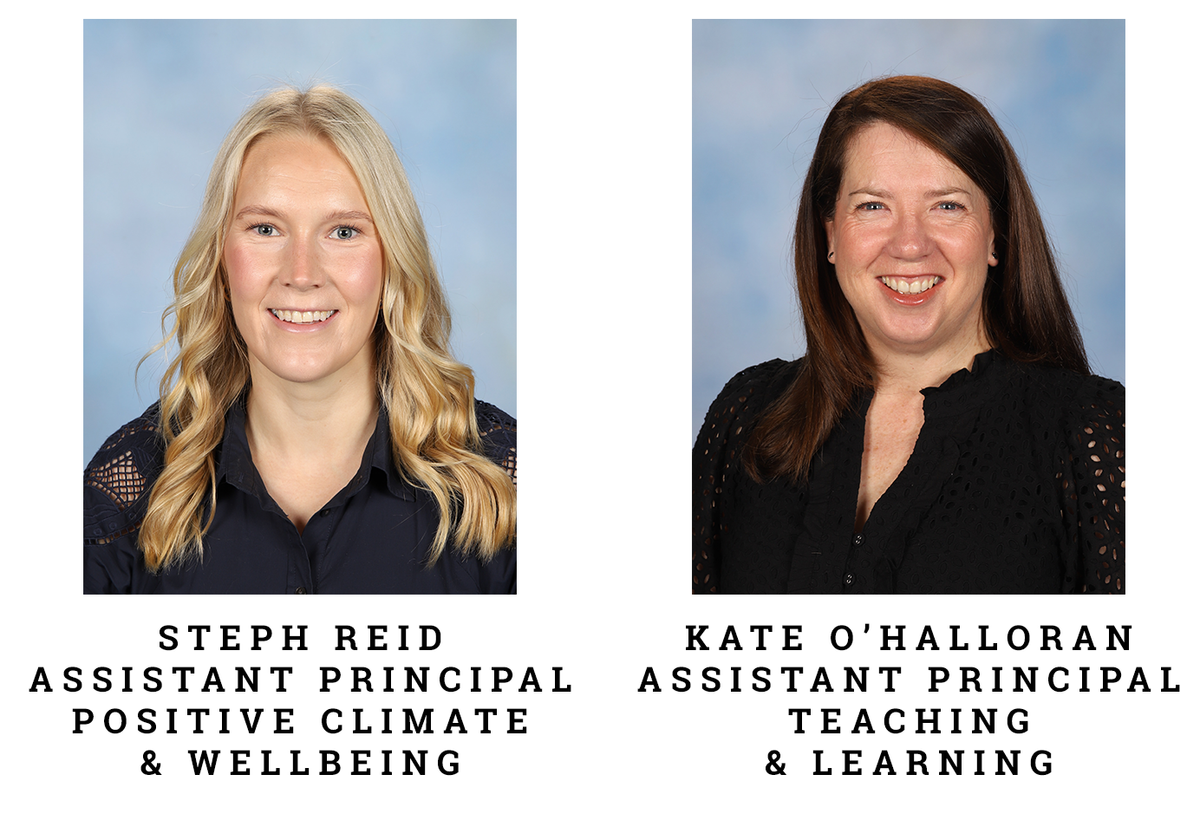Assistant Principals' Report

🚲🏃RIDE2SCHOOL DAY - MARCH 27TH! 🏃🚲
On Wednesday, March 27th, the Primary Years will be celebrating Ride2School Day, proudly run by our Student Leadership Academy. Students are encouraged to choose active travel to get to school, whether that’s walking, riding, or scooting.
If you don’t live within walking distance, you can still get involved by getting dropped off a little further away and walking the rest of the way. Every student who walks, rides, or scoots to school will earn a house point for their house and go into the draw to win some exciting bike-related prizes.
In addition to our active travel challenge, the Student Leadership Academy will be running a colouring competition, and there will be a special Cheesy Friday to promote healthy eating habits. We look forward to seeing our school community get involved and make active travel part of our daily routine.
Why Active Travel Matters
Active travel is a great way to start the day with energy and focus. The Australian physical activity guidelines recommend that primary-aged children get at least 60 minutes of physical activity every day—walking, riding, or scooting to school is a fantastic way to help meet this goal. Regular exercise supports not only physical health but also mental wellbeing, helping students to feel more focused and ready to learn.
Let’s make Ride to School Day a fun and active event for everyone—see you there!
CLASSROOM HELPERS
We are pleased to announce that we will be welcoming classroom helpers in the Primary Years from the beginning of Term 2.
To help in our classrooms we require parents and carers to:
- Complete our Classroom Helpers course
- Sign a confidentiality agreement each year (available from the PY office)
- Provide your current Working with Children Check (WWCC) to the PY office staff who need to sight it and make a photocopy
- Complete the Volunteer/Visitor Induction Course (Link)
We will be running an onsite Classroom Helpers course on Tuesday 1st April from 2:15 to 3:00 pm in the Library in the Primary Years main building. Parents and carers can access the library from the Prep playground. We understand that younger children may need to attend however we ask you to ensure that they have something to keep them entertained. If you would like to attend the Classroom helpers training, please registerHERE through Try booking.
If you have previously completed our online Classroom Helpers Course you do not need to attend this session, however, if you are intending on helping in the Prep - Year 2 classes we strongly encourage you to come along. We will be focusing heavily on Literacy and how you can support our Little Learners Love Literacy program.
Classroom teachers will send out information about helping in the classrooms next term so that they can make a roster of helpers for their class. We look forward to having you join us.
NUMERACY AT HOME
Numeracy is more than numbers. For example, numeracy helps us:
- understand and use numbers and other mathematical ideas in everyday life
- recognise and use shape
- work out the chance of something happening
- understand the data we see in the media.
Numeracy is necessary for everyday living. From daily activities like telling the time, cooking and setting the table to more difficult tasks such as understanding mobile phone plans, planning a trip, reading a map and understanding timetables.
Here is a range of fun activities that you can try together based on your child’s interests and experiences:
- Birth to Level 2 suggestions for children up to about 8 years of age, including activities for cooking, travelling, reading, shopping and exploring.
- Levels 3 to 8 suggestions for children and early adolescents including numeracy in the kitchen, travelling, reading, shopping, our neighbourhood, games and sports.
CYBER SAFETY
As part of our ongoing eSafety Commission parent video series, this week’s video focuses on Cyberbullying and online drama. The eSafety video for parents and carers highlights the importance of addressing cyberbullying and online drama, which can have emotional effects on young people. Research shows that many young Australians have experienced cyberbullying, often on social media or in online games. It's important for parents and carers to recognise signs of cyberbullying, such as changes in behaviour or mood, and to approach the situation with support, not punishment. Parents are encouraged to talk openly with their children about online safety, use available privacy settings, and report cyberbullying incidents to the relevant platforms or eSafety if needed. eSafety is a government agency that offers advice, resources, and direct support to resolve serious cases of online abuse.
Parents can help their children by checking device privacy settings, teaching positive online relationship-building, and encouraging communication. eSafety’s website provides helpful resources for both parents and children, including tips on identifying and managing cyberbullying. It’s important to foster open discussions about online safety, and parents should remind their children that it’s okay to ask for help early. If cyberbullying persists, eSafety can step in to assist, such as negotiating the removal of abusive content and helping resolve the conflict. Parents are also encouraged to share these resources with others and seek support services like Parentline for further advice.
Tips for Parents on eSafety:
- Check privacy settings: Regularly review and adjust your child’s online privacy settings to ensure they are appropriate for their age and maturity.
- Encourage positive online behaviour: Teach your child to respect others, such as asking for permission before sharing pictures of friends.
- Open communication: Keep an ongoing conversation about online safety, discussing topics like cyberbullying and how to handle difficult situations online.
- Report cyberbullying: If cyberbullying occurs, report it to the relevant social media platform or app. If the issue is unresolved, escalate it to eSafety for further action.
- Collect evidence: Take screenshots of abusive content and profiles to help with reporting and investigation.
- Use online resources: Visit eSafety’s website for helpful tools, guides, and resources. Encourage your child to use the site for self-help.
- Teach emotional management: Help your child think about how they would handle frustration, anger, or seeing someone being harassed online.
- Know where to get help: Make sure your child knows how to access support services like Kids Helpline or eHeadspace.
For more insights and tips, visit eSafety.gov.au.
ATTENDANCE
At Hazel Glen College, we are dedicated to providing all students with the opportunity to become successful learners and make the most of their educational experience. This foundation is built on consistent school attendance, ensuring that every student can engage fully with the opportunities presented to them in the classroom.
It is essential for students to arrive at school on time every day. Classrooms are open from 8:35 am to 8:45 am, giving students time to settle in, unpack their bags, use the bathroom, and prepare themselves for a productive day of learning. Session 1 begins promptly at 8:45 am to maximize every minute of instruction.
You may be surprised by the statistics below. If your child misses just 10 minutes each day, this adds up to 50 minutes per week, which is nearly 1.5 weeks of learning per year. Over the course of 13 years of school, this amounts to nearly half a year of missed education. If your child misses 20 minutes a day, that’s 1 hour and 40 minutes per week, nearly 2.5 weeks per year, and over 13 years of schooling, that equals almost an entire year of lost education.
At Hazel Glen College, we are committed to ensuring every student receives a high quality education, and that begins with attending school every day. Together, we can support students in staying on track, thriving and reaching their full potential.

